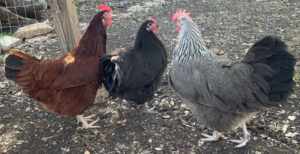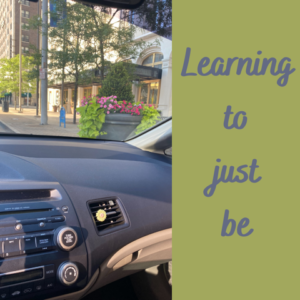A Champion in God’s Eyes
By Kimberly Novak
“Our world is obsessed with success. But how does God define success? Success in God’s eyes is faithfulness to His calling.”
Billy Graham
In any line of work, the rewards or fruits of our labor are often unknown. There are occasions when recognition occurs, but eight out of ten times, we do not know our impact upon someone or something. As an author, I try to get the yellow stars on Amazon, positive reviews for my blog, and the occasional kudos from a colleague.
It’s natural to strive for success in a chosen craft, especially when the project responds to God’s call upon our hearts. Aside from the occasional nudges of spiritual warfare, I am confident that I am walking in God’s Will for my life. However, until recently, I always thought my day job, or station, was my life’s work. That was until I met Lizzy.
Lizzy came into my life not by coincidence but through the gentle hands of God. On New Year’s Day, my phone rang, and on the other end, it was the most fabulous gift—a friend with a message from God.
My friend, an acquaintance of Lizzy’s, was calling to share some exciting news. Lizzy had been dealing with new cognitive deficits, which affected daily living. Lizzy and she often met to discuss these things when Lizzy’s outlook suddenly changed from sorrow to joy. One day, Lizzy held something tight in her grasp, and as her fingers released it, my chapter book, Bella’s Beautiful Miracle, was in her hands. Written primarily for middle-grade children in the voice of bugs, it shares Bella’s journey from caterpillar to butterfly. However, Bella’s journey is for all ages. With themes of prayer, renewal, and faith, it resonates with adults looking for more in their relationship with God, just like Lizzy.
As it turns out, I signed books at a local craft fair in December, and a friend of Lizzy’s purchased the book for her. Quite often, those without little ones to shop for will walk on by. Therefore, I make it a point to invite them over and share how Bella’s story relates to readers of all ages. Lucky for me, Lizzy’s friend was one of those people who was willing to listen.
I remember the conversation we had that day. She was attracted to the book because of Lizzy’s love for butterflies. I would say the cover art worked its magic at that moment! Signing and selling books at craft fairs can be tricky. Sometimes, I do better at churches, but then there are times when I have had success in unexpected places… No matter what, I always set the bar low to sell one book and plant one seed knowing that God will ensure its growth. On this particular day, God only needed one book to make a difference.
We had to meet! My friend arranged a time for the three of us to chat, and it was glorious! The best recognition of any writer has got to be face-to-face with the one God had you craft your story for. I was anxious at first at Lizzy’s star-struck reaction. I’m just a little woman in a normal suburb, living a normal life. As we sat and talked, we both became settled and natural. I felt God’s presence in the room, and I knew that the moment was designed by God and for His glory.
God took that one purchase and turned it into a miracle! Lizzy has become a new version of herself. She carries the book around and sees herself as Bella the caterpillar. Lizzy now shines in her smile and shares Jesus with those who will listen. Bella’s story, exactly!
I might not win awards or be the best-selling author, but my trophy awaits me in heaven. Recognition from God for a job well done and the memory of Lizzy’s smile as she held tightly to my written words is gold star enough for me! My meeting with Lizzy was a true blessing and gift from God. This experience has shed light upon my life’s work; God has shown me that my life’s work is all about bringing people closer to Him. That might be through my day job or writing, but I am open to answering that call.
(Names and experiences were modified to maintain confidentiality).
©️ 2025 Kimberly Novak
Edited by Janet Tamez




 Let me begin, then, by saying that I never intended to become “the chicken lady” of my neighborhood. When my husband called from work one day, saying that a colleague had no further need of 4 unhatched baby chicks and did I think we could take them in for a while, I said “Sure” simply because I like animals and couldn’t stand the thought of those little chickies being – literally – thrown away. That was about the extent of my thinking.
Let me begin, then, by saying that I never intended to become “the chicken lady” of my neighborhood. When my husband called from work one day, saying that a colleague had no further need of 4 unhatched baby chicks and did I think we could take them in for a while, I said “Sure” simply because I like animals and couldn’t stand the thought of those little chickies being – literally – thrown away. That was about the extent of my thinking. My little flock did not choose each other, but they’ve formed themselves into a community nevertheless. Although they are all different types of hens, they get along. Yes, there is certainly a pecking order (Sandy is at the top) but there is still room for everyone, despite their various temperaments. For example, Pebbles, our black Australorp, tends to get broody and take over the nesting box, while Pepper, a light Brahma and the smallest of the five chickens, likes to make up for her small size by being feisty and pecking everyone, including the dogs. Occasionally there are some ruffled feathers but most of the time there are contented, chatty clucks and check-ins, and at the end of the day they all go into the hen house and sleep peacefully together. If I’ve had a hard day with a difficult person, I really notice their ability to not hold a grudge and to let bygones be bygones. It reminds me that I might not always want to spend a lot of time around a certain person or persons, but I don’t have to take everything personally and I don’t have to carry resentment with me every day. (And I’m always somewhat flabbergasted that the hens consider our two pitties part of their community!)
My little flock did not choose each other, but they’ve formed themselves into a community nevertheless. Although they are all different types of hens, they get along. Yes, there is certainly a pecking order (Sandy is at the top) but there is still room for everyone, despite their various temperaments. For example, Pebbles, our black Australorp, tends to get broody and take over the nesting box, while Pepper, a light Brahma and the smallest of the five chickens, likes to make up for her small size by being feisty and pecking everyone, including the dogs. Occasionally there are some ruffled feathers but most of the time there are contented, chatty clucks and check-ins, and at the end of the day they all go into the hen house and sleep peacefully together. If I’ve had a hard day with a difficult person, I really notice their ability to not hold a grudge and to let bygones be bygones. It reminds me that I might not always want to spend a lot of time around a certain person or persons, but I don’t have to take everything personally and I don’t have to carry resentment with me every day. (And I’m always somewhat flabbergasted that the hens consider our two pitties part of their community!)

